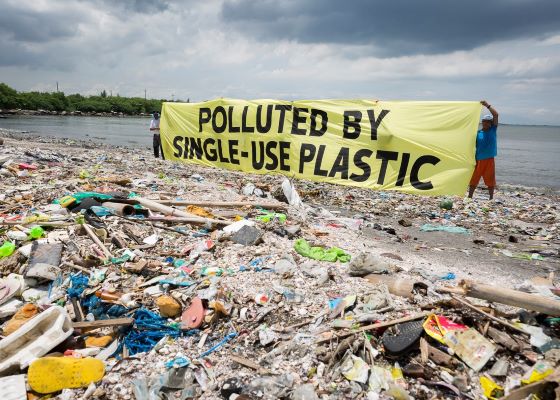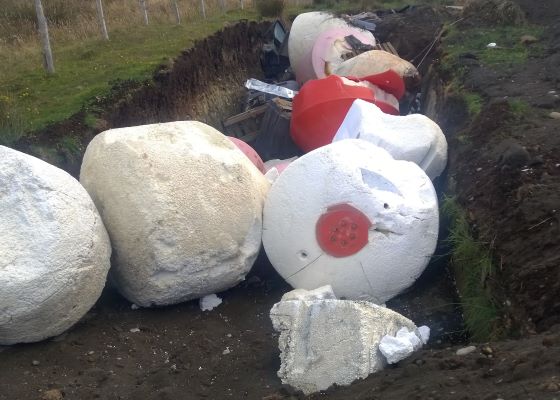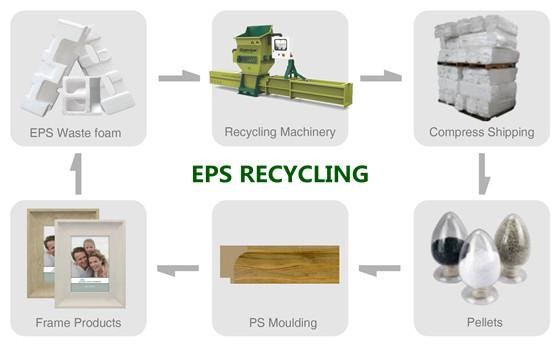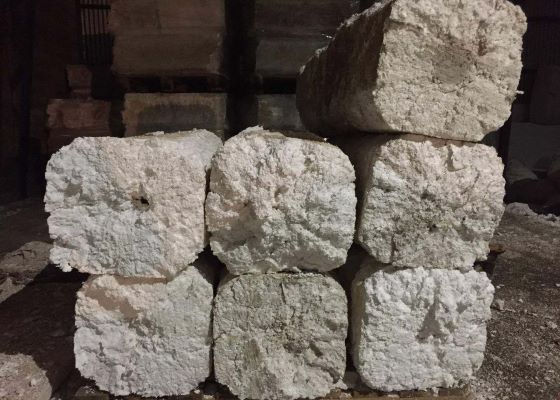GREENMAX EPS Compactor revives the discarded EPS foam buoys of marine debris off the coast of Chile
Recently, the United Nations Environment Programme issued a comprehensive assessment report, From Pollution to Solution: A global assessment of marine litter and plastic pollution, which shows that the aquatic ecosystem from the source to the ocean is facing serious threats, and the phenomenon of plastic pollution infiltration has increased sharply. It is estimated that related pollution will more than double by 2030, which will undoubtedly bring severe challenges to human health, global economy, biodiversity, and climate environment.
85% of the marine garbage mentioned in the above report is plastic, and by 2040, the amount of plastic garbage flowing into the ocean area will nearly triple. Every year, 23 to 37 million tons of plastic garbage will be added to the ocean, which is equivalent to 50 kilograms of plastic waste for every meter of coastline in the world. This assessment report calls on the world to reduce the amount of plastic immediately and encourages the transformation of the entire plastic value chain. Global marine garbage disposal has become an urgent issue for all mankind.

In Chile, there is a company called Full Pack that has been recycling and processing EPS foam buoys on the seaside for 5 years, helping local governments and environmentalists to reduce marine garbage pollution. Full Pack is a large-scale comprehensive recycling company in Chile, which mainly recycles various waste plastics, waste paper, and various electronic products. Since the establishment of the company, Full Pack has recycled a large number of waste plastics, contributing to the local environmental protection and sustainable economy.

During the operation of Full Pack, local environmentalists and governments have been asking whether the foam buoys on the beach can be recycled. These buoys are EPS foam wrapped in hard accessories and can float on the sea as markers. Because there are a large number of fish farms on the coast of Chile, EPS buoys are widely used as fence signs. Under normal circumstances, these buoys will be used for several years in the breeding farm, but due to the erosion and damage of the seawater, they will be replaced every year, and a large number of EPS foam buoys will accumulate on the coast. After years of accumulation, a large number of EPS foam buoys were discarded at will on the beach. The sea breeze often blows these foam buoys everywhere. The local government and environmentalists have been unable to find a suitable solution.

Full Pack knew that INTCO Recycling has more than 20 years of experience in the EPS foam recycling industry, has been exploring the latest foam recycling solutions, and has independently developed and manufactured GREENMAX EPS Foam Compactor. After understanding the needs, INTCO Recycling provided Full Pack with a professional recycling program: After the foam buoy is processed and crushed, it is compressed with a GREENMAX EPS Foam Compactor, and the volume can be reduced to 1/50 of the original. The compressed foam buoys can be transported to the terminal processing factory for processing, and finally made into renewable products such as photo frames, decorative picture frames, skirtings, and so on.

With the help of GREENMAX EPS Foam Compactor and the entire industry chain of EPS foam recycling, these EPS foam buoys can easily achieve a gorgeous transformation from marine debris to new products.
After more than 5 years of project operation, Full Pack has recycled more than 1,000 tons of EPS buoys and solved the problem of white foam pollution on the Chilean coast. These recycled buoys have become a variety of decorative photo frames, dotted in our In daily life, it is used to record beautiful moments. INTCO Recycling not only helped Full Pack to perfectly treat the marine garbage on the Chilean coast, but also realized the transformation of the value chain of marine foam garbage with the help of the GREENMAX EPS Foam Compactor, and established a company image with environmental protection awareness and social responsibility for Full Pack in the local area.
